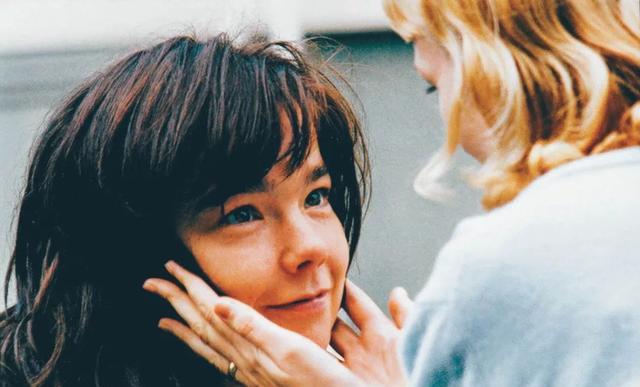It's a movie where you can't find the absolute bad guys, he doesn't have gorgeous costume props, he doesn't have exquisite camera transitions, and even the pseudo-documentary follow-up method is a headache. Such a film became one of the most controversial films of the 20th century, exposing the life of the people at the bottom of the United States at that time, mixed with "ignorant" maternal love and "absurd" goodwill. This is the hand of the film genius - Ras von Trier's film "Dancer in the Dark".

Innocence or stupidity
Selma, a near-Czech immigrant woman, came to the United States with her child, who will face the same fate due to genetic diseases, and I don't know if it was the American dream or the obsession to cure the child. Work hard and save money to cure your child's genetic eye diseases when the child is 13 years old. All this is just to repay the original knowledge of the result and give birth to this child, and the mother's love is extremely dazzling at this moment. Selma doesn't seem to have a purpose of its own other than to cobble together the cost of the child's surgery. No, she has, and the only thing that belongs to her is her love of song and dance. Rehearsing stage plays in her spare time may be her only consolation, and maybe her life is not so bad. Jeff, who asks every day after work if he can take her home, helps her friends Kathy and landlord Bill all the time, as if this is a ray of sunshine shining into her life.
But reality is reality after all, and the blind eye disease makes her unable to see the world and even people's hearts in front of her. In the face of the meticulous Jeff, she always says no, yes, a blind woman who has to pay for medical expenses, what to take to maintain the so-called love. She'd rather grope herself on the train tracks every day than Jeff give her a ride, she's so stupid, stupid enough to refuse to be helped. Day after day on the train tracks, she was already familiar with the way home. The sound of the train gradually coming was like a heavy slap into her bland as stagnant life, and the song I have seen it all does not know whether to sing without regret or helplessness. The intersection of reality and fantasy directly pushes the entire film to its climax.
Her life is like the stage play she loves, always reversed. Bill, who was reluctant to buy a gift cake for her son's birthday but helped her steal the surgery fee she had scraped, because he loved his wife, and the days of spending money had already made him unable to make ends meet, and he did the cruelest thing to keep his beloved wife. In the face of Selma's questioning, although Bill promised to return it to her next month, Selma could not wait, she wanted to take her only son to the treatment, she chose to kill Bill. Faced with the punishment of the law, she refused to use the only money to hire a lawyer and chose her son, which at this moment showed that her mother's love was a little foolish.
Selma in court was as calm as a pool of stagnant water, and she didn't care if she only wanted her children to be saved. Eventually, Selma was sentenced to death. She was terrified, frightened, unable to stand, so much so that she had to lean against the path of the gallows that had taken 107 steps down the gallows in her fantasy song and dance. I was fascinated by her singing and dancing, until the music stopped abruptly, and I realized that the black hood was like a hood on my neck and could not breathe, and that the tragedy was so sudden and cruel.
If you're going to ask me if this is a good movie? I would say it is, but it's certainly not a "good looking" movie, and the helplessness and depressing suffocation it brings makes it hard to like the story. The turning point that the audience expected did not appear, and Ras von Trier portrayed this almost "deformed" character, which must bring helpless "sadness".